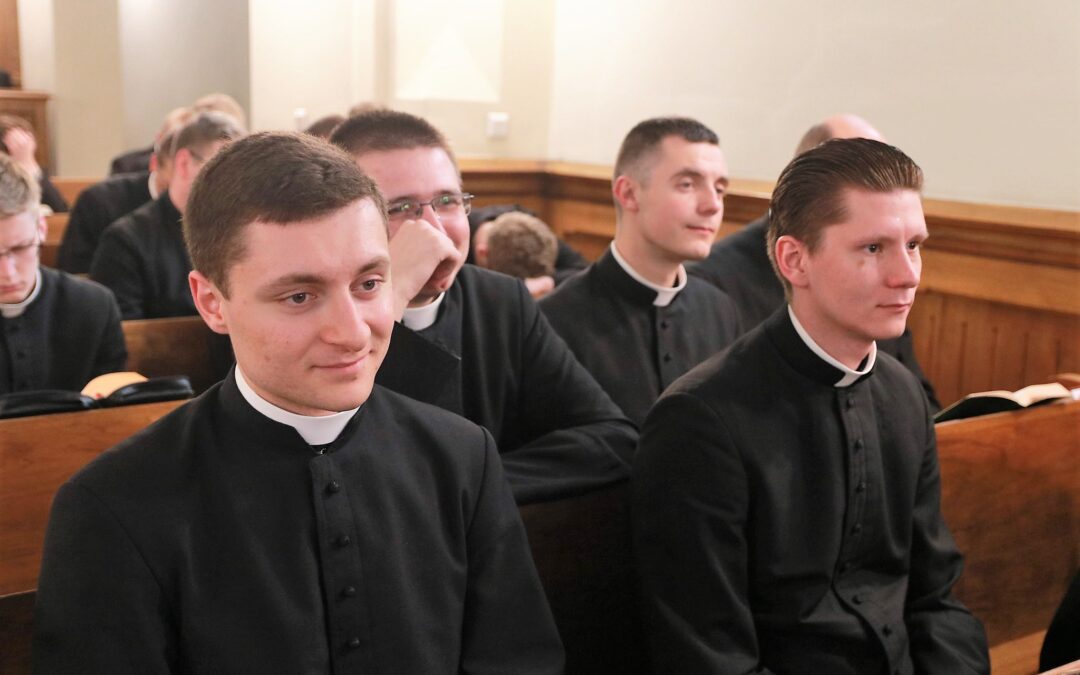The number of people joining Catholic seminaries in Poland to train as priests has fallen 20% since last year. The latest figures continue a long-term decline that has seen those seeking to join the priesthood more than halve in less than a decade, with the rector of one seminary calling it a “crisis”.
At the start of this academic year, 356 men became candidates for the priesthood, reports the Catholic Information Agency (KAI). That is a decline from 441 who did so last year, 498 in 2019 and 828 back in 2012. KAI notes that there has been a “systematic decline” since the start of the century.
This year, four higher theological seminaries – in Bydgoszcz, Drohiczyn, Elbląg and Łowicz – saw no new candidates join at all. Last year, that happened in only one case. The most popular seminaries this year were in Rzeszów, where 12 candidates joined, and Łódź, where 11 did.
Speaking earlier this month, the chairman of the Conference of Rectors of Major Seminaries in Poland, Piotr Kot, admitted that the drop in candidates is linked to the “image of the church and clergy in society”, where “a lot has changed”.
Though Poland remains one of Europe’s most religious countries, with around 90% of the population officially classified as Catholic, church attendance has been falling and especially young people have been turning away from the faith.
“People in general are losing faith, and young people in particular are being put to a great test,” said Kot, quoted by RMF24. “It is difficult for someone to hear the call ‘Follow me’ if he has not met a community enraptured by the gospel.”
Piotr Paćkowski, rector of the Higher Seminary of the Diocese of Siedlce, admits that there is now a “crisis”, with “a significant collapse” in new candidates for the priesthood. “There is no single reason for this,” he told News4Media. “Some [reasons] depend on us, others not.”
Paćkowski says that the pandemic has played a role in the decline, as it made it more difficult to attend church. Unlike in many countries, places of worship have remained open in Poland throughout the pandemic, though often with limits on the numbers who can attend services.
But, like Kot, Paćkowski admits that “the social perception of the church is also important”. In recent years, this has been damaged by a series of revelations of sexual abuse of children by priests and alleged cover-ups by bishops. The church’s support for an unpopular near-total ban on abortion has also aroused controversy.
In response to the decline in candidates, the Polish episcopate has called on seminaries to create a new “introductory stage” for students at the start of their six-year studies to join the priesthood, in order to help them better adapt.
Main image credit: Joanna Adamik/Archidiecezja Krakowska (under public domain)

Daniel Tilles is editor-in-chief of Notes from Poland. He has written on Polish affairs for a wide range of publications, including Foreign Policy, POLITICO Europe, EUobserver and Dziennik Gazeta Prawna.




















